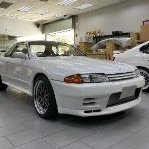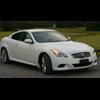Best Boost Controller
Announcements
-
Similar Content
-
Latest Posts
-
Trailer got new mudguards to accommodate the new wheels Lightweight ally Painted, stickered and done ✅ 👌
-
Did you hit up the search function? R33 and greddy and cable returns this thread with some options. https://www.sau.com.au/forums/topic/358214-rb25-throttle-body/
-
Thanks buddy.. the standard one needs to be about another inch or inch and a half longer. Thanks anyway
-
I was 99% sure the standard one is long enough to get there, you might just have to change the throttle orientation. If not, I remember someone having used an r31 cable instead, but that is probably harder to find than r33 by now...
-
HELP Hey all, Is there an accelerator cable from another Nissan that can be used on the R33 GTST RB25DET with a Greddy forward facing plenum? Thanks in advance Rob
-







Recommended Posts
Create an account or sign in to comment
You need to be a member in order to leave a comment
Create an account
Sign up for a new account in our community. It's easy!
Register a new accountSign in
Already have an account? Sign in here.
Sign In Now